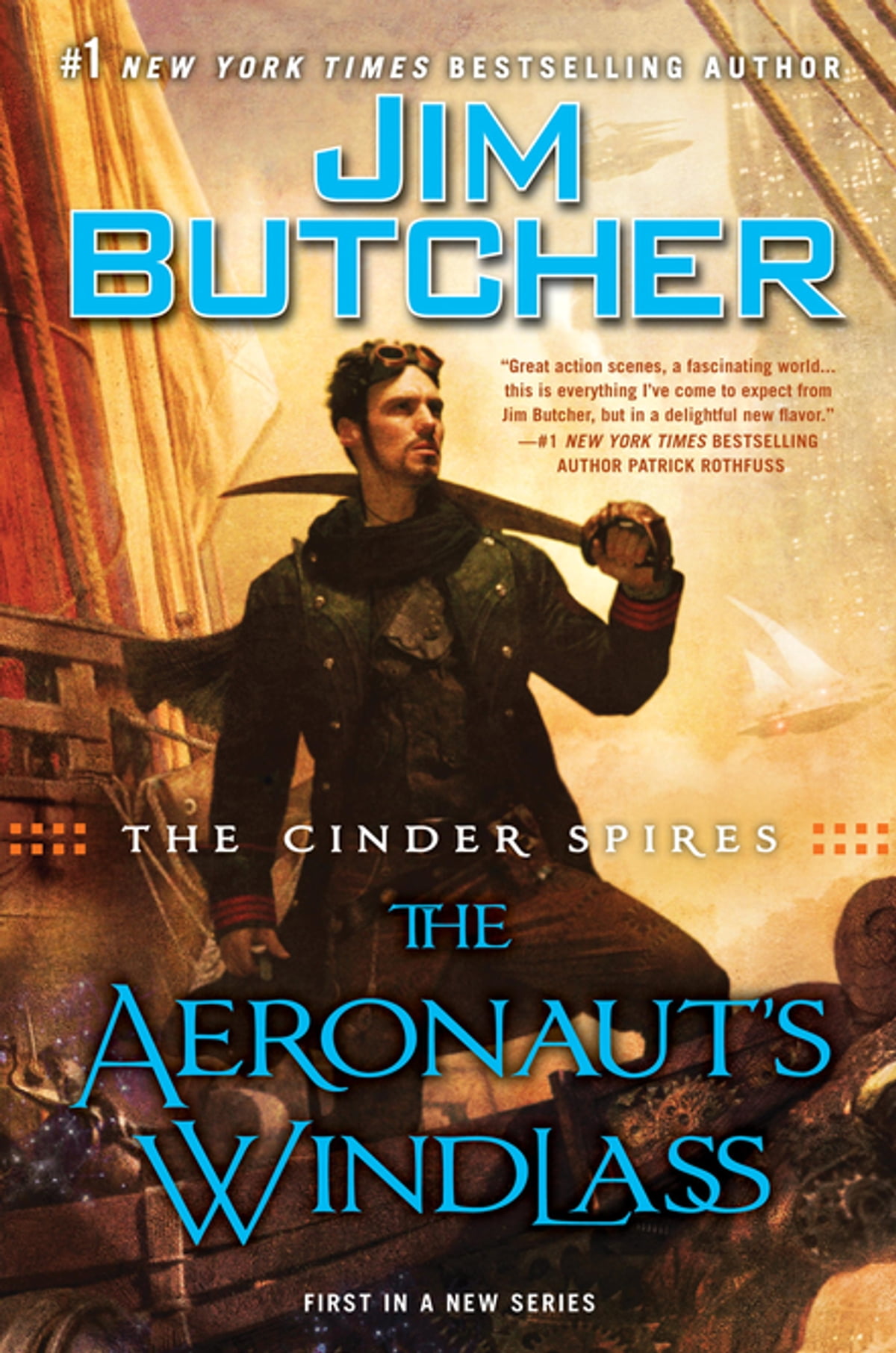Sami Sundell reviewed The aeronaut's windlass by Jim Butcher (Cinder spires)
Review of "The aeronaut's windlass" on 'Goodreads'
2 stars
The Aeronaut's Windlass introduces us to a world of aether and spires. The surface of the world has been taken by vegetation and monsters, and people have been living in huge spires for thousands of years. The Builders constructed them using methods and materials unknown to current populace, so it's no wonder they are revered.
The moving force in the world is ether. People grow crystals that can harness and focus the power of ether flows, and thus accomplish things both mundane and magnificent: illumination, levitation, protective force fields, energy bolts... Ethersilk, made by monstrous silkweavers, can be used as sails for airships to ride etheric currents. Some people, etherealists, are sensitive to etheric energy, and can even see future.
Why exactly that is, is unclear. Ether is central to everything happening in this book, yet there's no discussion about its nature. Maybe its use is just so ingrained into the characters that they take it as self evident, but it would've been nice to have at least some kind of explanation on what it is. Why exactly etheric energy passing through a person makes that person able to see the future. Or why it tears holes into their mind.
Other things could use an explanation as well. Like why all other crystals lose their power when they age, but core crystals become more efficient. And please don't say it's only because otherwise it would be hard to tell what's giving The Predator an edge against just about all the other airships in the world.
Or the cats. Why are there cats? Why did Butcher think it would be a good idea to write chapters from the point of view of a cat? And when he did, why did he decide to write it with the stereotypical superiority complex?
I'm not saying this is a bad book. There's plenty of action, it flows reasonably well, and there's occasionally some funny dialogue. It's also perfect for people who want to know what they are getting: at least in this opening book, the main characters are undeniably good guys - even the purported character flaws are just badmouthing - and the opponents are very obvious bad guys. The bad guys do what they do because they are bad; the motivations aren't really revealed.
If you're into series, there's bound to be continuity - according to an interview, Cinder Spires could be a trilogy or it could be nine books depending on how it's received. If the next book has less cats, I might be interested.

